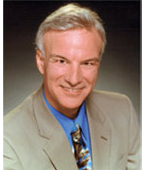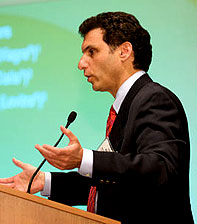Testosterone Supplementation: What It Can and Cannot Do

Host: Anti-Aging Psychologist Dr. Michael Brickey
Guest: Urologist/Harvard Medical School Associate Professor Dr. Abraham Morgentaler
Broadcast and podcast on webtalkradio.net. The podcast is also below.

Age brings declining testosterone levels. Low testosterone levels are associated with arteriosclerosis, diabetes, osteoporosis, erectile dysfunction, increased fat, and decreased libido, energy, and muscle mass. While at estimated 20% of American men over fifty have low testosterone levels, only about 5% of them get treatment for it.
Read More Testosterone Supplementation: What It Can and Cannot Do